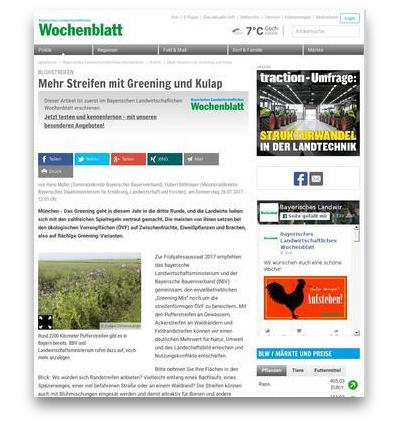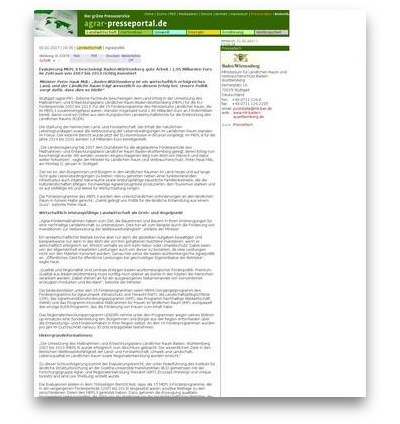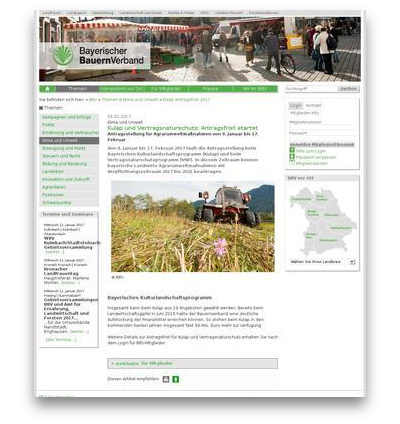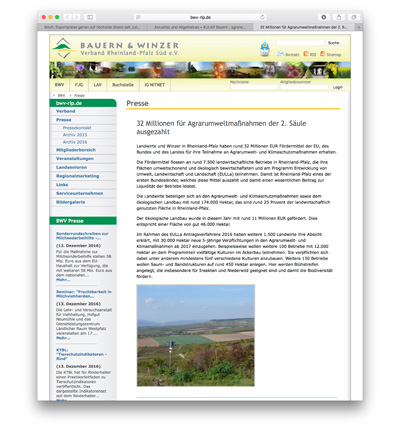
More stripes with greening and Kulap
Greening is entering its third round this year and farmers have familiarised themselves with the numerous rules of the game. Most of them are focussing on catch crops, protein crops and fallow land for ecological focus areas (EFAs), i.e. extensive greening variants.

Evaluation of MEPL II attests to Baden-Württemberg's good work / 1.95 billion euros invested correctly between 2007 and 2013
Minister Peter Hauk MdL: "Baden-Württemberg is an economically successful state, and rural areas contribute significantly to this success. Our policy ensures that this remains the case" Stuttgart (agrar-PR) - External experts have certified the state's success in implementing the Baden-Württemberg Rural Development Plan (MEPL) for the EU funding period 2007 to 2013. A total of around 1.95 billion euros in funding was available for the 15 funding programmes of the Ministry of Rural Areas, which were combined in MEPL II, around a third of which came from the European Agricultural Fund for Rural Development (EAFRD). The focus was on strengthening local agriculture and forestry, preserving natural resources and improving living conditions in rural areas. The external report has now been submitted to the EU Commission in Brussels. MEPL III for the years 2014 to 2020 will provide 1.8 billion euros Source: agrar-presseportal.de

Kulap and contract nature conservation: application deadline starts
The application period for the Bavarian Cultural Landscape Programme (Kulap) and the Contractual Nature Conservation Programme (VNP) runs from 9 January to 17 February 2017. During this period, Bavarian farmers can apply for agri-environmental measures with a commitment period from 2017 to 2021. source: bayerischerbauernverband.de

32 million paid out for agri-environmental measures under Pillar 2
Farmers and winegrowers in Rhineland-Palatinate have received around EUR 32 million in funding from the EU, the federal government and the state for their participation in agri-environmental and climate protection measures. The funding went to around 7,500 farms in Rhineland-Palatinate that cultivate their land in an environmentally friendly and organic manner and participate in the Development of Environment, Agriculture and Landscape (EULLa) programme. This makes Rhineland-Palatinate one of the first federal states to disburse these funds and thus make a significant contribution to the liquidity of farms. Farmers participate in agri-environmental and climate protection measures as well as organic farming on around 174,000 hectares, which is around 25 per cent of the agricultural land in Rhineland-Palatinate. Source: bwv-rlp.de

